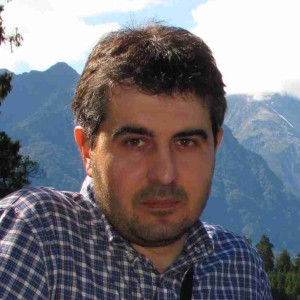Dr Fabrizio Gherardi

From
Institute of Geosciences and Earth Resources (IGG) / CNR - IT
In residence at
French Geological Survey (BRGM) - FR
Host scientist
Dr Pascal Audigane
PROJECT
Geochemical fluid rock interactions during leakage of CO2 from geological storage: from the reservoir to the shallow groundwaters.
ln order to mitigate greenhouse gas effect, geological storage of carbon dioxide is today envisaged as a promising alternative technology. Still, concerns remain about the safety of a storage complex and especially when leaky fluids (CO2 and/or acidified brines) would migrate from storage formation up to overlying aquifers through natural or man-made way (typically, faults or leaky well). The objective of this project is to assess the evolution of the water rock interactions from a chemical point of view occurring during this specific context of leakage scenario by providing a catalogue of events and associated impacts considering geochemical changes of the leaky fluids from the source of the leakage (the storage formation) through the leaky path (leaky well or fault) up to the impacted area (fresh water aquifers). ln this context, application of isotope systematics and numerical tools are envisaged with the aims to:
1-characterize the chemical mechanisms impacting the water-rock system during the migration of the CO2 and their control on the geochemical processes (precipitation-dissolution; adsorption/desorption; acidification and redox evolution)
2-predict the long term evolution of the chemical changes occurring from the storage formation and through the leakage path (well or fracture) to evaluate the impacts on strategic overlying aquifers used for water supply. Specific attention will be paid on the presence of co-injected gas (e.g. flue of CO2 captured from electrical power plant using coal burning contain a few percentage of additional gas like SOx and NOx or H2S) which may impact significantly the acidification of the brines and the mobilization of trace elements released during the mineral dissolution or by desorption process. Application to field sites will be performed using two different and specific contexts, the first one in a large sedimentary basin (e.g. the carbonated Dogger aquifer in the Paris Basin, France) and the second one in a demonstration site where injection is conducted (sandstone saline aquifer of Ketzin in Germany for which BRGM is partner of the European research project FP6 called C02CARE starting this year). Data from field sites will be used as a basis for characterizing the mineralogy and the fluid chemistry. Afterwards the results of the project will be easily extrapolated to other analogues geological situation. By studying the fluid rock interactions mechanisms and over what time scale they might occur, this project will investigate the possible usage of these geochemical changes as an indicator of CO2 leakage from deep geological CO2 repositories. Results of the project should help at providing criteria for the safety and effectiveness of geologic carbon sequestration sites as well as considering the monitoring necessity of such storage sites.
